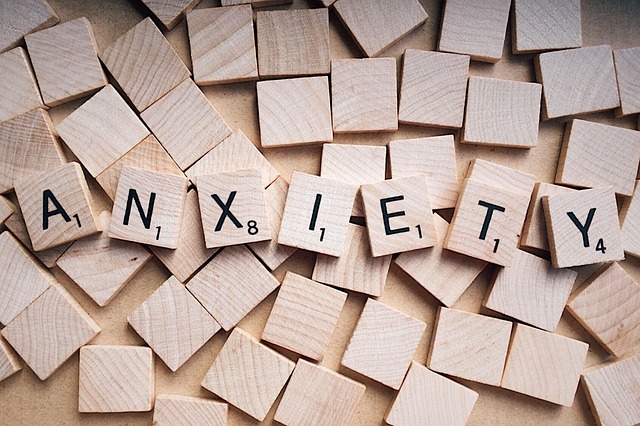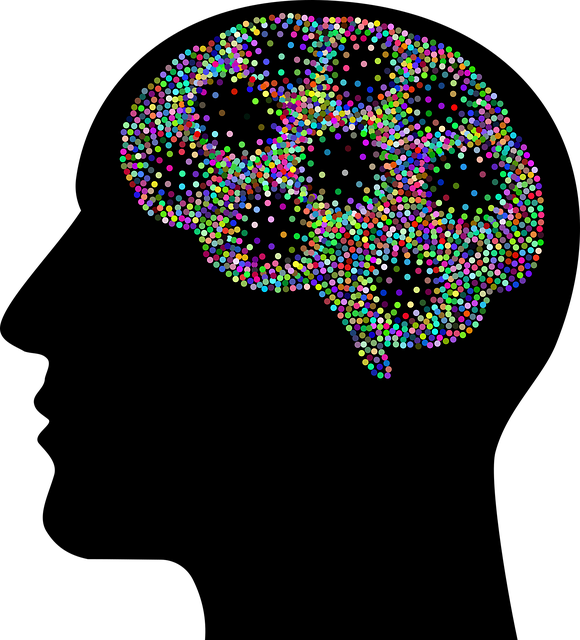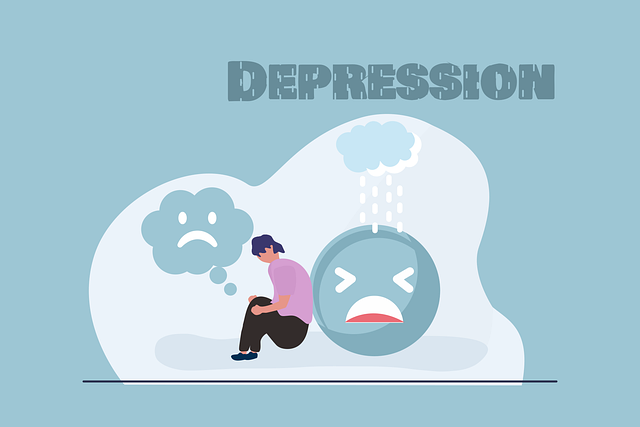Cultural competency is a cornerstone of modern healthcare, especially at facilities like Highlands Ranch Sexual Addiction Therapy (HRSAT), where patients have diverse cultural backgrounds and unique sexual health concerns. This involves understanding and respecting different beliefs, values, and practices to offer inclusive care. By embracing this approach, HRSAT's providers build trust, encourage open communication, and tailor services to individual needs, leading to improved mental health outcomes. Effective cultural competency training helps professionals navigate biases, foster empathy, and mitigate disparities in care. The case study highlights HRSAT's successful model, emphasizing emotional intelligence and a safe, non-judgmental environment. Comprehensive training programs are crucial for healthcare providers in diverse communities, including HRSAT, to enhance services, improve patient outcomes, and address complex issues like sexual addiction effectively. Evaluating these programs through surveys and research shows enhanced patient satisfaction, communication, diagnosis accuracy, and health outcomes, as demonstrated by HRSAT's significant improvements in cultural sensitivity among its providers.
“Cultural competency training is transforming healthcare delivery, ensuring providers offer sensitive, effective care to a diverse patient population. This article explores this critical topic, starting with an understanding of cultural competency in healthcare and its profound impact on patient outcomes. We present a case study highlighting successful cultural sensitivity practices at Highlands Ranch Sexual Addiction Therapy. Essential training components and measurement strategies are discussed to help healthcare providers improve patient experiences and outcomes.”
- Understanding Cultural Competency in Healthcare: Why It Matters
- The Impact of Cultural Biases on Patient Care and Outcomes
- Highlands Ranch Sexual Addiction Therapy: A Case Study in Cultural Sensitivity
- Essential Components of Effective Cultural Competency Training Programs
- Measuring Success: Evaluating the Effectiveness of Cultural Competency Training
Understanding Cultural Competency in Healthcare: Why It Matters

Cultural competency is a vital aspect of modern healthcare, ensuring providers can offer effective and respectful services to diverse patient populations. It involves understanding and appreciating different cultural beliefs, values, and practices, especially in communities like Highlands Ranch Sexual Addiction Therapy where patients may face unique challenges related to their sexual health and well-being. By embracing cultural competency, healthcare providers can create an inclusive environment that promotes trust and encourages open communication.
This approach is crucial when addressing issues such as stress reduction methods, anxiety relief, and even implementing community outreach program initiatives. Patients from various cultural backgrounds may have different expectations and preferences regarding their healthcare. For instance, some communities might prioritize holistic healing practices while others seek evidence-based treatments. Cultural competency training equips healthcare providers with the skills to adapt their approach, ensuring that every patient receives personalized care that respects their cultural identity.
The Impact of Cultural Biases on Patient Care and Outcomes

Cultural biases held by healthcare providers can significantly impact patient care and outcomes. These biases, often unconscious, stem from personal experiences, societal norms, and cultural stereotypes. When unaddressed, they can lead to miscommunications, inappropriate treatment plans, and even discrimination. For instance, a provider’s assumptions about a patient’s behavior or adherence to treatment protocols based on their racial or ethnic background can hinder progress in Highlands Ranch Sexual Addiction Therapy.
Such biases may result in disparities in access to quality care, with certain patient groups receiving less effective or even harmful treatments. This is particularly concerning in complex areas like mental health policy analysis and advocacy, where emotional healing processes heavily depend on the understanding and sensitivity of healthcare providers. Effective conflict resolution techniques can mitigate these issues by fostering open dialogues, promoting cultural awareness, and encouraging empathy among medical professionals.
Highlands Ranch Sexual Addiction Therapy: A Case Study in Cultural Sensitivity

In the context of healthcare provider training, the case study of Highlands Ranch Sexual Addiction Therapy (HRSAT) exemplifies the importance of cultural sensitivity and emotional intelligence. HRSAT focuses on treating individuals struggling with sexual addiction, recognizing that their journey often involves complex interpersonal dynamics, trauma, and diverse personal beliefs. This therapy model prioritizes creating a safe, non-judgmental space, emphasizing empathy and understanding rather than shame or blame. By fostering emotional healing processes through techniques like cognitive-behavioral therapy, HRSAT demonstrates the power of tailoring care to meet individuals’ unique needs.
The success of HRSAT underscores the value of integrating self-care routine development for better mental health into healthcare provider training. Emotional intelligence, the ability to recognize and manage one’s own emotions and understand the emotions of others, is a cornerstone of effective therapy. Through ongoing education and practice, healthcare providers can enhance their emotional intelligence, enabling them to connect more deeply with patients, offer tailored support, and ultimately facilitate healthier outcomes.
Essential Components of Effective Cultural Competency Training Programs

Effective cultural competency training programs are integral to enhancing healthcare services and improving patient outcomes, especially in diverse communities like Highlands Ranch. These initiatives aim to equip healthcare providers with the skills to navigate complex cultural landscapes and offer sensitive support to patients from various ethnic, racial, and social backgrounds.
A well-designed program should incorporate several key components. Firstly, it must emphasize cultural awareness, encouraging professionals to reflect on their own biases and assumptions. This self-awareness is crucial for understanding how personal experiences shape interactions with patients from different cultures. Secondly, interactive workshops and role-playing scenarios are powerful tools. They allow participants to practice communication strategies that respect and accommodate diverse needs, beliefs, and values. Additionally, integrating mental health education programs design elements can help professionals recognize cultural factors contributing to psychological distress, enabling more tailored interventions. Risk management planning for mental health professionals is another vital aspect, ensuring practitioners are prepared to handle sensitive topics while mitigating potential risks and burnout, a prevalent issue in the field.
Measuring Success: Evaluating the Effectiveness of Cultural Competency Training

Evaluating the success and effectiveness of cultural competency training is a critical step in ensuring that healthcare providers are equipped to deliver quality care to diverse patient populations. This process involves assessing both knowledge acquisition and behavioral changes among participants.
Measuring outcomes can include surveys gauging attendees’ understanding of different cultural perspectives, their confidence in interacting with diverse patients, and the integration of new skills in clinical practice. Longitudinal studies have shown that well-designed training programs result in improved patient satisfaction, enhanced communication, and more accurate diagnoses, ultimately leading to better health outcomes. For instance, a study at Highlands Ranch Sexual Addiction Therapy revealed significant improvements in providers’ ability to address cultural sensitivities, which positively impacted the mental wellness of patients from various backgrounds. Additionally, conflict resolution techniques learned during training sessions were successfully applied in real-world scenarios, fostering inner strength development among both healthcare providers and their diverse patient base.
Healthcare provider cultural competency training is not just a beneficial practice; it’s essential for delivering quality, equitable care. As demonstrated by the case study of Highlands Ranch Sexual Addiction Therapy, culturally sensitive approaches can significantly improve patient outcomes and satisfaction. By equipping professionals with the knowledge and skills to navigate diverse cultural contexts, we foster more inclusive healthcare environments. Effective training programs, as outlined in this article, should prioritize interactive learning, real-world scenarios, and continuous evaluation to ensure providers are equipped to offer compassionate, competent care to all patients, regardless of their background.














